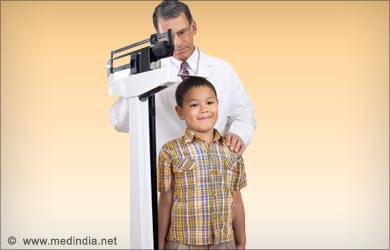How is Prader-Willi Syndrome Diagnosed and Treated?
Treatment of Prader-Willi syndrome involves restoring normal growth and activities of affected child.
Diagnosis of Prader-Willi syndrome is based on the patient history, physical examination and blood tests. Clinical diagnostic criteria of PWS confirm the presence of the disease. Further confirmation is obtained from the molecular genetic testing and neuroimaging studies.
Treatment of Prader-Willi syndrome includes the following:
- Treatment of symptoms: Symptoms of PWS like reduced tone, excessive eating, obesity and hormonal insufficiency should be identified and treated. Healthy nutrition, regular counseling, and growth hormonal therapies are necessary to improve the prognosis of the disease.
- Infant Nutrition: To compensate the nutritional deficit due to poor suckling during neonatal period, the baby requires high calorie formula milk, a regular feeding schedule and assisted feeding. Calorie intake is assessed in terms of increase in height, weight and head circumference.

- Growth Hormone Therapy: Growth hormone replacement therapy with good dietary management is found to be beneficial and improves height, muscle tone and decreases body fat.
- Sex hormone Treatment: Sex hormones therapy that includes testosterone for males and estrogens and progesterone for females helps to replenish low levels of sex hormones. It also reduces the risk of developing osteoporosis.
- Diet Control: As the child grows, nutrition should include a low calorie diet to control the weight. Sufficient amounts of fats should be added to the diet to help in brain development. Vitamins and calcium intake should be monitored and be given as supplements if required. Regular monitoring of weight gain is necessary. A balanced diet, prevention of binge eating and increased physical activity help to manage the condition.

- Treatment for developmental disabilities: Early diagnosis of PWS in children is essential for interventional treatment that includes physical, occupational, social skill training, interpersonal skills and speech therapies. This helps the child to focus on learning and diminishes behavioral disturbances.
- Psychological care: Psychological care is required to treat behavioral symptoms. It includes parental education, counseling and medications. Serotonin agonists are found to be successful in improving compulsive behavior and reducing temper tantrums.

Treatment is symptomatic based on the specific symptoms and the complications associated with the disease.




